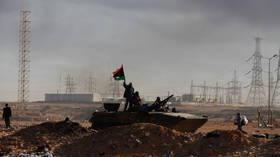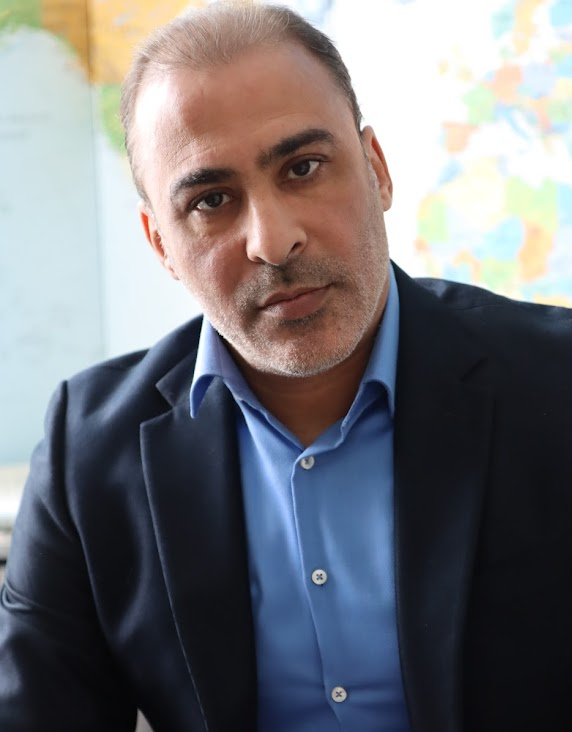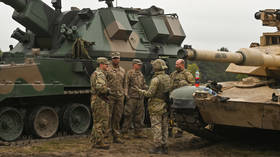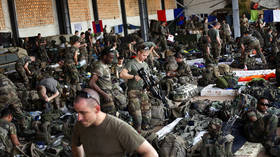NATO bombed Libya to ‘protect civilians’ 12 years ago. This led to thousands of deaths and a country in ruins
The Western war machine only served its own interests in destroying a nation that could liberate Africa

On the 19th of March 2011, the NATO bloc began a violent 8-month long military onslaught of Libya, a sovereign African-Union founding member state, which had enjoyed four decades of stability, prosperity and one of the highest Human Development Index (HDI) scores in all of Africa.
NATO’s justification for the aggressive and bloody attack was the now-infamous “protection of civilians'' doctrine, formalized under UN Security Council Decree No. 1973. The French Air Force, however, had already initiated a major raid on immobile Libyan Army units. They had already pulled out of the city of Benghazi, a protest hotbed, in a show of goodwill and peaceful intent. More than 400 resting Libyan officers, soldiers, medical and media personnel were massacred without the chance to fight back against an unjustified and undeclared foreign air attack.
Tens of thousands more Libyans would later perish under more than 26,000 air raids, 100 cruise missile attacks and a naval blockade conducted by NATO’s 30-member coalition. Among the victims were a terrifying number of civilians from all walks of life. The number of women and children killed was especially high, as they sought refuge in civilian buildings deliberately targeted by the mighty NATO: including houses, apartment blocks, schools and community centers. As we witnessed time and time again in Iraq, Serbia, Afghanistan and Syria, NATO justified these attacks by claiming they were seeking out fighters and weaponry housed in civilian facilities. No evidence has ever been presented.
In the weeks that led up to this aggression, I spoke officially for the Libyan Government in countless international press conferences, media appearances and diplomatic appeals. Before hundreds of international media outlets, I expressed one single demand: that all hostilities cease under the direct supervision of the UN and that the African Union installs an international fact-finding mission to determine who committed what act, paving the way for a national conference of all Libyan parties to the conflict. This single most powerful and earnest appeal was rejected without consideration in Western centers of hegemony and ridiculed in Western media outlets.
The only solutions that were endorsed and praised were more rockets, bombs and the continuous arming of Islamist and tribalist terrorist groups on the ground.
In the years after, “crimes against humanity” charges against the revolutionary government of Libya were either never proven or were shown to have been false. In fact, given its 12 years of total control over Libya (land, resources, institutions and archives), the West has been unable to show the alleged 8,000 victims of rape by the Libyan army, nor the 10,000 “murdered” civilians, nor the neighbourhoods of Tripoli allegedly destroyed by Muammar Gaddafi’s air force, nor the African mercenaries supposedly imported by the Gaddafi government in the first week of the “Libyan Spring” (15-22 February 2011).
The actual “crimes” of the Libyan revolutionary Government, however, were real and consequential: Gaddafi’s Libya was re-shaping the political, economic and cultural context of the African continent in radical and independent ways not seen since the nominal de-colonization of African countries in the 1950s and 1960s.
On September 9, 1999, under the leadership of Gaddafi, the establishment of the African Union was announced in his birthplace, the coastal city of Sirte (the very city in which he would fight his last battle against NATO in 2011). Gaddafi then announced the start of a major revolutionary project for the plundered and exploited continent: building pan-African economic, security and communication institutions with the aim of gaining complete and true independence from the control of the West. The most consequential of these institutions were the African Central Bank (ACB), the African Golden Dinar, the African Gold Reserve, the African Security Council (ASC), the Unified African Army (UAA), the African Parliament, the African Organisation for Natural Resources (AONR), the African Communications Network (ACN) and the African Common Market.
Indeed, Gaddafi led the way towards the establishment of some of those institutions, initiated the build-up of the Libyan gold reserve and was on the threshold of issuing the African Golden Dinar, which he considered naming the Afro.
These real on-the-ground projects would have liberated the continent from the dominance of Western centers of power and monopoly, transforming global economic structures and inspiring other regions in the Global South to “unite, organize and fight”.
The Europeans and Americans did warn Gaddafi against his “meddling” in Africa. The US, under an African-American president, hurried to create AfriCom, the American pan-African military force, in 2008. The French followed suit with their deployment of an “anti-terrorism” task force in the Sahel. Moreover, the intensity with which the continent’s riches were stolen increased (especially gold) while the meddling of British, French and American diplomats in the affairs of the African Union and African Parliament also grew exponentially.
The focus of Western mainstream media in the 2000s on a “new and collaborative” spirit in economic relations with Africa was therefore not accidental – it was all as planned and in harmony with the military, economic and political agenda in Western centers of power.
Then, in 2011, utilizing the political turmoil in Tunisia and Egypt, the West encouraged and ordered its agents on the ground in Libya to foment a false revolution in small pockets inside the country. This was spearheaded by the Libyan Islamic Fighting Group (LIFG), an infamous Afghani-Libyan terrorist organization with training and weaponry from the American army and “battlefield commanders” trained and exalted by NATO’s top “educational” personnel in the caves of Afghanistan in the 1980s and early 1990s.
The West promised the world democracy, human rights, and prosperity for Libya and the whole Sahel and Sahara region in Africa. Instead, by the 12th anniversary of the NATO onslaught, Libya itself had become a notorious slave market for illegally “imported” African migrants and a battlefield for French-orchestrated African Sahel tribalist conflicts (in Chad, Niger, Mali).
The country that once led Africa’s liberation project now lies in ruins, with 10 foreign-controlled military bases scattered across its territory, hosting more than 20,000 foreign troops and mercenaries, and bearing $576 billion in financial losses since the start of NATO’s intervention.
Over 60,000 additional Libyans have been killed in the ongoing civil conflict, fuelled and maintained by mostly foreign and Western-sponsored forces fighting for their interests and dominance on the Libyan front. All sectors of the Libyan economy and society (education, health, housing, employment and living standards) have been devastated, dismantled and ravaged by 12 years of Western-funded conflict and political turmoil.
As for Africa as a whole, the great African Union has lost its edge after a total freeze on most of the aforementioned “projects of liberation,” from the African Golden Dinar to the Unified African Army. In fact, the West’s exploitative economic, political and military presence in Africa has only increased since the murder of Gaddafi, a true testimony to the very reason he was assassinated.
In the last few weeks, the UN Security Council has appointed the 8th Special Representative to Libya since 2011, Mr. Abdoulaye Bathily. Mr. Bathily has been conducting the same routine visits to the warlords and their militias in Libya, holding the same routine political and press conferences and reiterating the same old Security Council discourse: we are here to bring democracy and prosperity to all Libyans, and we shall defend human rights and protect civilians. Those who oppose this political process will be brought before international justice.
The only problem is that Mr. Bathily is speaking as if this is the first day of the first year of the Libyan tragedy. He does not bother to mention that it is instead the 12th Anniversary of the devastation of a developed, prosperous and stable African nation. Furthermore, he doesn’t bother to highlight the simple fact that foreign military powers and mercenaries are present and active in Libya, something at least acknowledged by his predecessor, Stephanie Williams.
However, there is always hope for the great black continent. The legacy of its great leaders and martyrs from Gamal Nasser to Patrice Lumumba to Kwame Nkrumah to Nelson Mandela continues to inspire African consciousness, struggle and resistance. In the last few months, for example, a major popular movement has been building up in Western Africa to end all Western military presence in the Sahel region, with governments starting to slowly but steadily heed these calls for liberation and sovereignty. Wherever you go in Africa nowadays, you can hear the literal words and viable ideas of Gaddafi coming up in conversations about African liberty, independence and dignity.
In my work with the Libyan Green Resistance and the African popular movements, I am always faced by this question raised by thousands of African freedom fighters: what to do? My answer is always straight and simple to all my African comrades: unite, organize and fight!
The statements, views and opinions expressed in this column are solely those of the author and do not necessarily represent those of RT.
https://www.rt.com/africa/573132-nato-bombed-libya-africa/




0 Comments:
Post a Comment
Subscribe to Post Comments [Atom]
<< Home